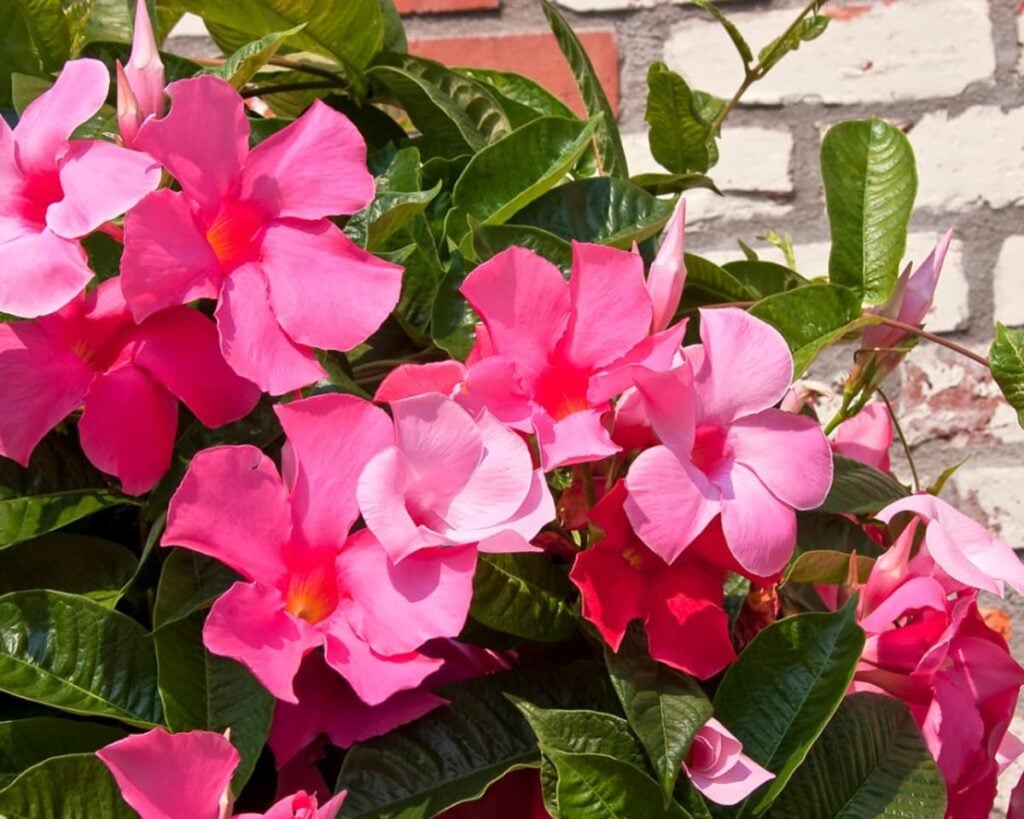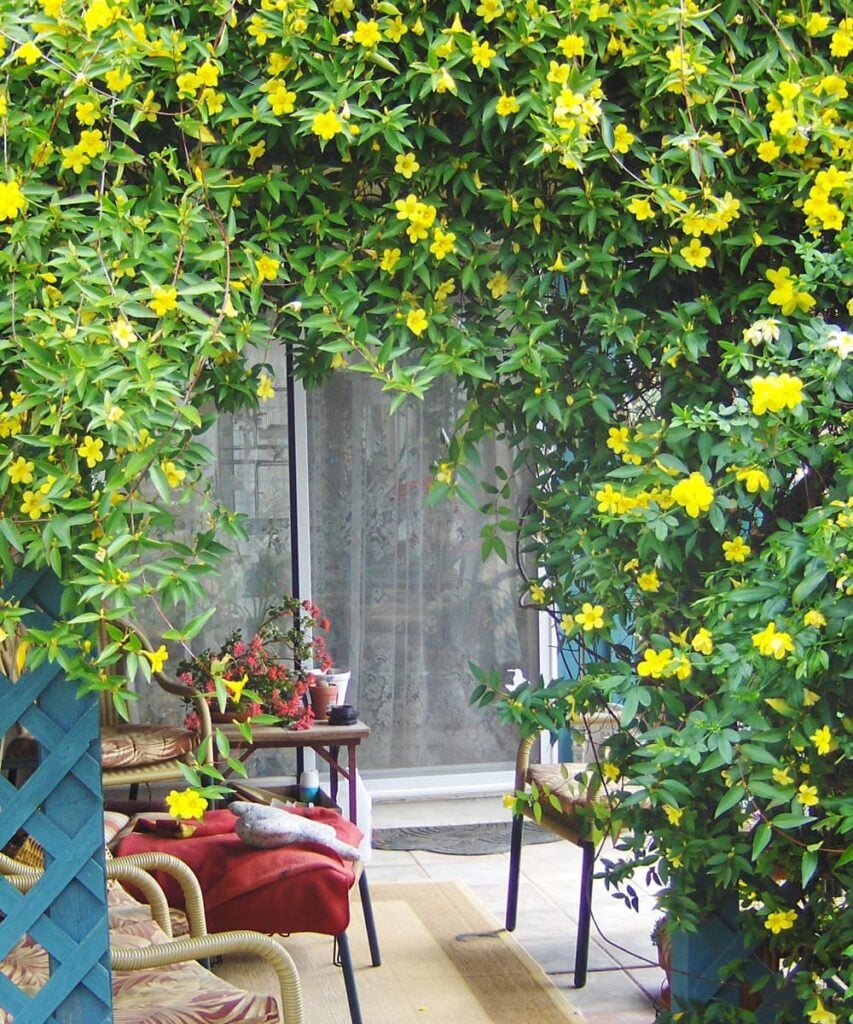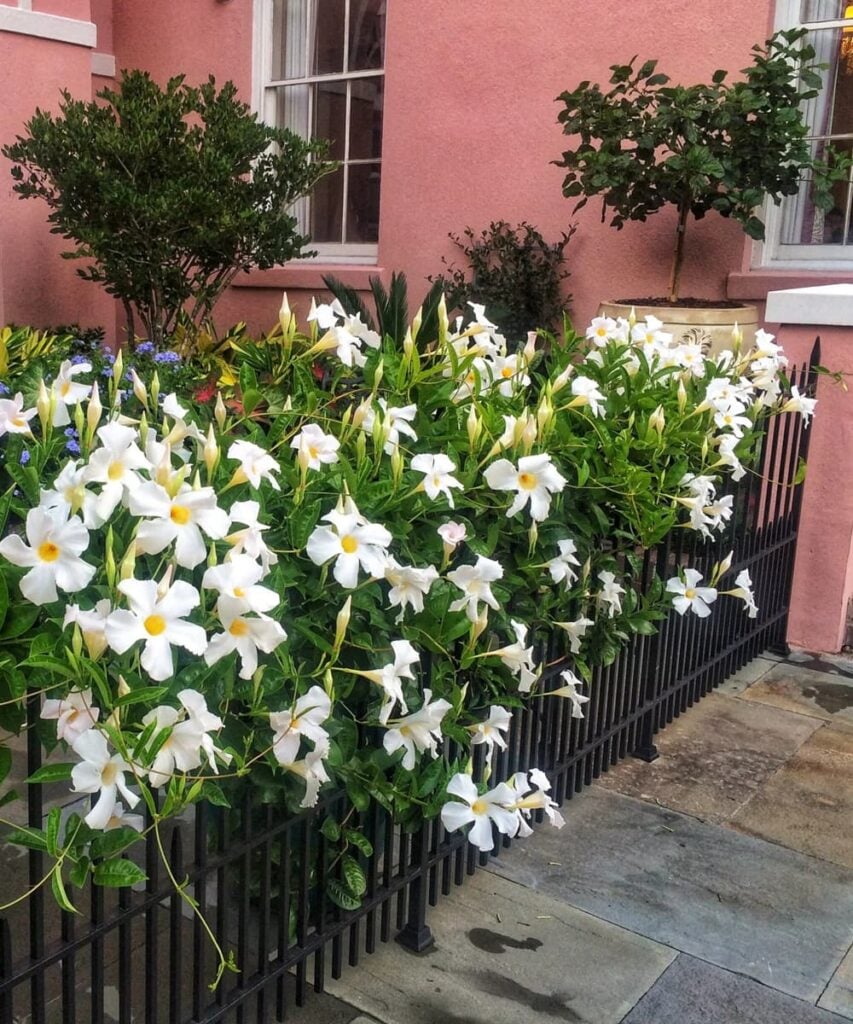Everything You Need to Know about Mandevilla Care

The Mandevilla, also known as Rocktrumpet, is a tropical plant belonging to the Apocynaceae family. The five-petal flowers are often showy and fragrant, typically coming in shades of pink, red, and white, occasionally with yellow throats. They generally bloom in summer and can stretch into fall, though in warm climates they can bloom year-round. Check out our Mandevilla collection.
Mandevilla Care
Mandevilla plants are easy to care for as long as you get their growing conditions right. The vines thrive in lots of light, warmth, and moisture, so plan to water yours whenever the soil begins to dry out and feed your plant during the growing season.
Light
Mandevilla thrives in the heat. Mandevilla grows and flowers best in full sun. It should be kept in sunlight for at least 6 hours every day. However, they will tolerate some shade and might even appreciate shelter from the hot afternoon sun at the peak of summer. While it’s more than possible to grow Mandevilla in the full sunshine, they seem to do better when they have a bit of shade to cool off under on a hot day.
Soil
Mandevilla vines need sandy, well-draining soil with plenty of organic material mixed in. A good potting mix is a combination of peat moss, sand, and leaf mold. A slightly acidic to neutral soil pH is best, though the plant can also tolerate slightly alkaline soil. Mandevilla requires well-drained soil that’s rich in nutrients like nitrogen and calcium. One of the most important parts of planting your Mandevilla is providing the right potting mix or substrate for the plants.
Water
The Mandevilla enjoys having its soil moist throughout the day. One can provide a slow trickle watering system that slowly releases water into the soil to ensure accurate moisture levels at all times. Unlike many flowering plants, the Mandevilla species can withstand some dryness while continuing to flower. That said, they prefer a consistent level of moisture, so aim to keep the soil damp but not soggy.

Temperature and Humidity
These plants require warm temperatures and high humidity. Temperatures should be at least 15 degrees Celsius during the day and no lower than 10 degrees Celsius at night for Mandevilla to be planted outside. If you live in a dry climate, regularly misting your plants will help to keep humidity levels up.
Fertilizer
Fertilize your vine in spring with a slow-release, balanced fertilizer. Alternatively, you could use a liquid fertilizer at half-strength every two weeks from spring to fall. It also can be helpful to mix some compost into the soil to improve nutrition levels.

Common Problems
- Symptom: Root rot
Cause: Over watering. - Symptom: Leaf spots
Cause: Fungus. - Symptom: Yellowing/browning of leaves
Cause: Fusarium Rot (Fungal disease). - Symptom: Crown Gall/Olive knot
Cause: Bacterial disease.
The Mandevilla vine got its moniker from the late Henry Joseph Mandeville, a British diplomat, and avid gardener. When it comes to getting your Mandevilla plant to produce bountiful blooms each summer, there are a few must-have conditions the plant relies on. First and foremost, your Mandevilla plant requires ample light in order to produce the most buds.
Proper fertilizing is also an important factor in getting your Mandevilla to bloom. Feed the plant every two to three weeks during the growing season with a fertilizer that is high in phosphorus. If you live in an especially dry climate and are watering frequently, you may want to fertilize every two weeks, as it will be washed through the soil more quickly due to water.
Mandevilla vines enhance the visual of arches, pergolas, and they do well as potted plants trellised on the patio. This plant loves to climb, and it will reach the top of any trellis or pergola with ease.
Mandevilla care reference: TheSpruce
